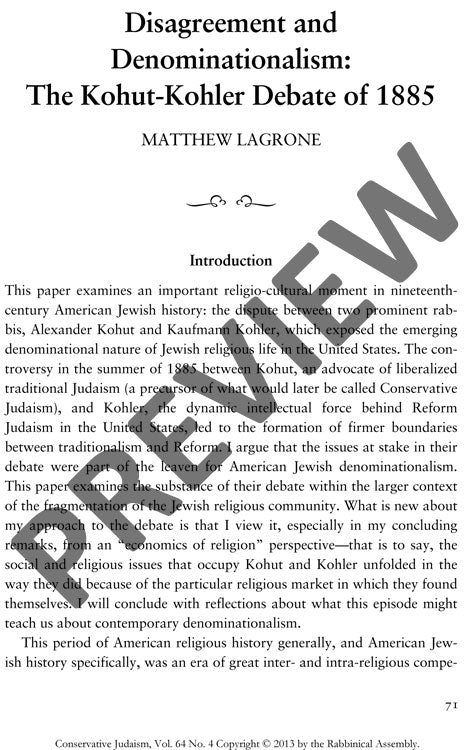Disagreement Denominationalism Kohut Kohler Debate
Couldn't load pickup availability
A pivotal religious debate in 1885 between rabbis Alexander Kohut and Kaufmann Kohler crystallized the emerging denominational boundaries in American Judaism. Their published sermons in *The American Hebrew* and other Jewish periodicals reveal a fundamental clash over biblical criticism and Jewish law that would shape American Jewish identity for generations. Kohut, representing liberalized traditional Judaism that preceded Conservative Judaism, insisted the Pentateuch remain exempt from higher criticism and maintained rabbinic law's binding authority. In contrast, Kohler, Reform Judaism's intellectual architect, embraced critical scholarship and advocated evolving beyond legal obligations toward ethical monotheism. Through an "economics of religion" theoretical framework, the debate exemplifies how America's unregulated, voluntary religious marketplace enabled unprecedented denominational competition and choice. The controversy catalyzed two major institutional developments: the radical Pittsburgh Platform (1885) and the Jewish Theological Seminary's establishment (1886). Rather than fragmenting American Judaism, this analysis shows how such principled disagreement stimulated religious innovation and pluralism, transforming a centralized "cathedral" model into a competitive "bazaar" structure that defines contemporary American Jewish life.

More Information
-
Physical Description
-
Publication Information
Published 2013
ISBN
-
Publication Credits

